Finding Christmas joy in a refugee settlement
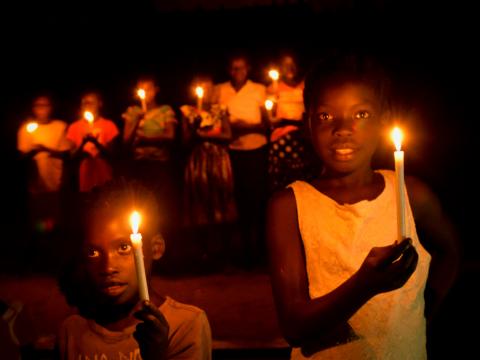
By Aggrey Nyondwa Kikobera, Communications Official, World Vision Uganda
Thirteen-year-old Assumpta Ajonye, the leader of the children’s choir at her father’s church in Uganda, can’t hide how excited she is about a new dress that her father has promised to buy for her this Christmas. “My father always buys for us new clothes every year on Christmas,” she says. “Last year I got a white dress and I will be waiting for another one this year. Three of my siblings have already gotten theirs.”
Assumpta, who leads a group of jolly and vibrant boys and girls singing ‘Joy to the World’, says they start singing Christmas songs as soon as December comes. She has had three Christmases in BidiBidi settlement, and can barely remember the ones in her home country, South Sudan. Assumpta’s elder sister, Gloria, vividly remembers some good Christmas days in South Sudan.
“In South Sudan, we would have all the freedom,” says Gloria. “We could visit relatives during the holidays, and move as far away as we wanted, because we knew so many people.” Things are different in Uganda, home to 1.4 million refugees, with over 220,000 living in BidiBidi settlement. “The settlement is a bit confined, and most of our relatives are not here,” she says.
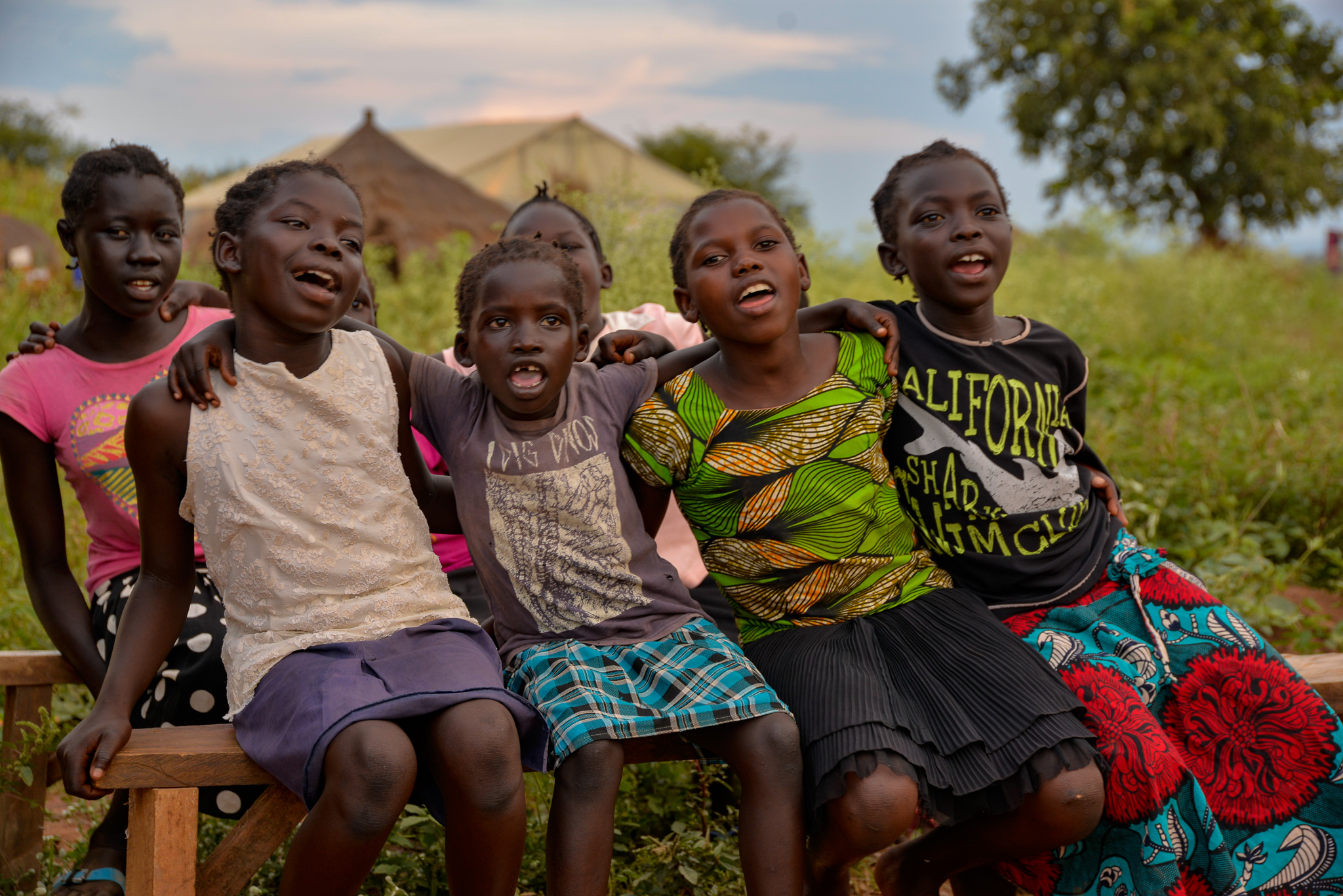
Christmas Past
As the festive jingles from the singing children reach his ears, the girls’ father, Pastor Isaac Badaye, drifts into a distant memory of life as a 10-year-old boy during Christmas in 1979, in his home village of Mugo, in Yei, South Sudan. Everyone is running around—a bull, a goat and chicken have been slaughtered, all to celebrate the birth of Christ. Isaac’s whole clan has come together at his uncle’s place, to enjoy one big Christmas meal. “It was the best Christmas I have ever had,” he recalls. “Christmas and the days leading up to it were always sweet and merry; the most beautiful time of the year indeed.”
Completely lost down memory lane, Isaac adds, “We would wait for it [Christmas] the whole year, basically with three things to be excited about, eating a lot of good food, getting new clothes, and going to church.”
As the other children waited for new clothes from their parents, Isaac and his siblings usually didn’t get clothes for Christmas from their parents. “We were quite many at home and my parents didn’t have a lot, and unlike other parents who would try their best, ours didn’t care much whether we got new clothes or not,” he says.
The Pastor adds that he doesn’t want his own children to experience the same, and this is why, like many other parents still do, he ensures that all his young children get new clothes for Christmas. “I know I didn’t get much from my family especially around this period, but I still want the best for my children. If everyone is getting a new pair of shoes or dress or shirt for Christmas, then why not my children?” he says.
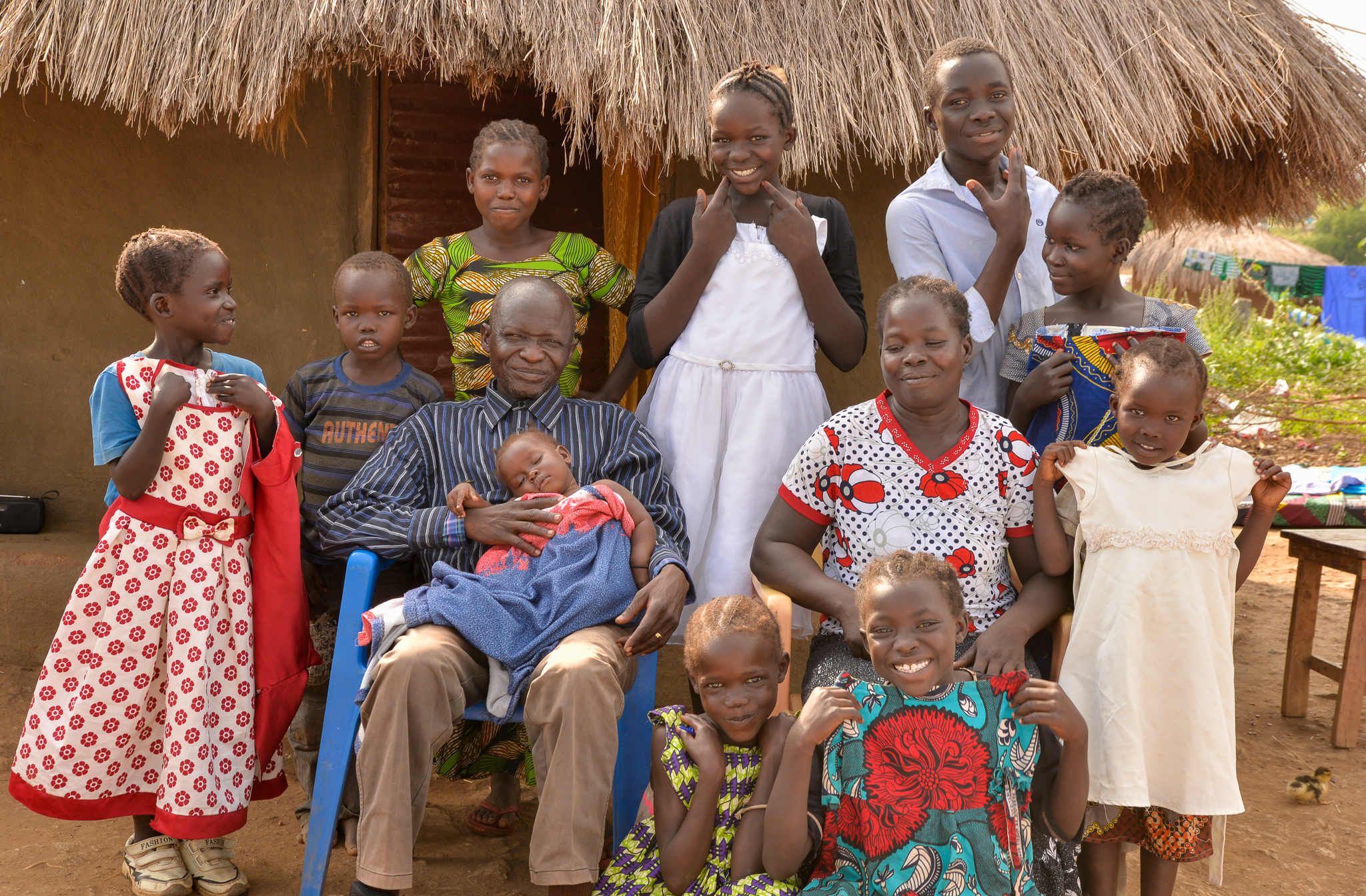
Christmas Present
Isaac’s wife, Charity Kira, tells us that the Christmas meal requires a lot of preparation. She wakes up before dawn to start preparing Christmas lunch.
“We literally don’t sleep on Christmas Eve. We go for overnight in the church up to after midnight, and by 4am, I and the girls are up to start cooking.” And cook she does. “I cook many kinds of dishes; chicken, goat’s meat, mingled cassava, rice and others, and I use the best spices I can find in the market. A Christmas meal has to be special!” she says.
That Christmas meal is so special that families rear chicken and goats from as early as April, to specifically be prepared for the next Christmas. This is because buying a cock or goat the months towards Christmas is a challenge for many. The prices go high. Those who cannot afford to slaughter a chicken, duck or a goat, buy meat from the market.
Christmas Business
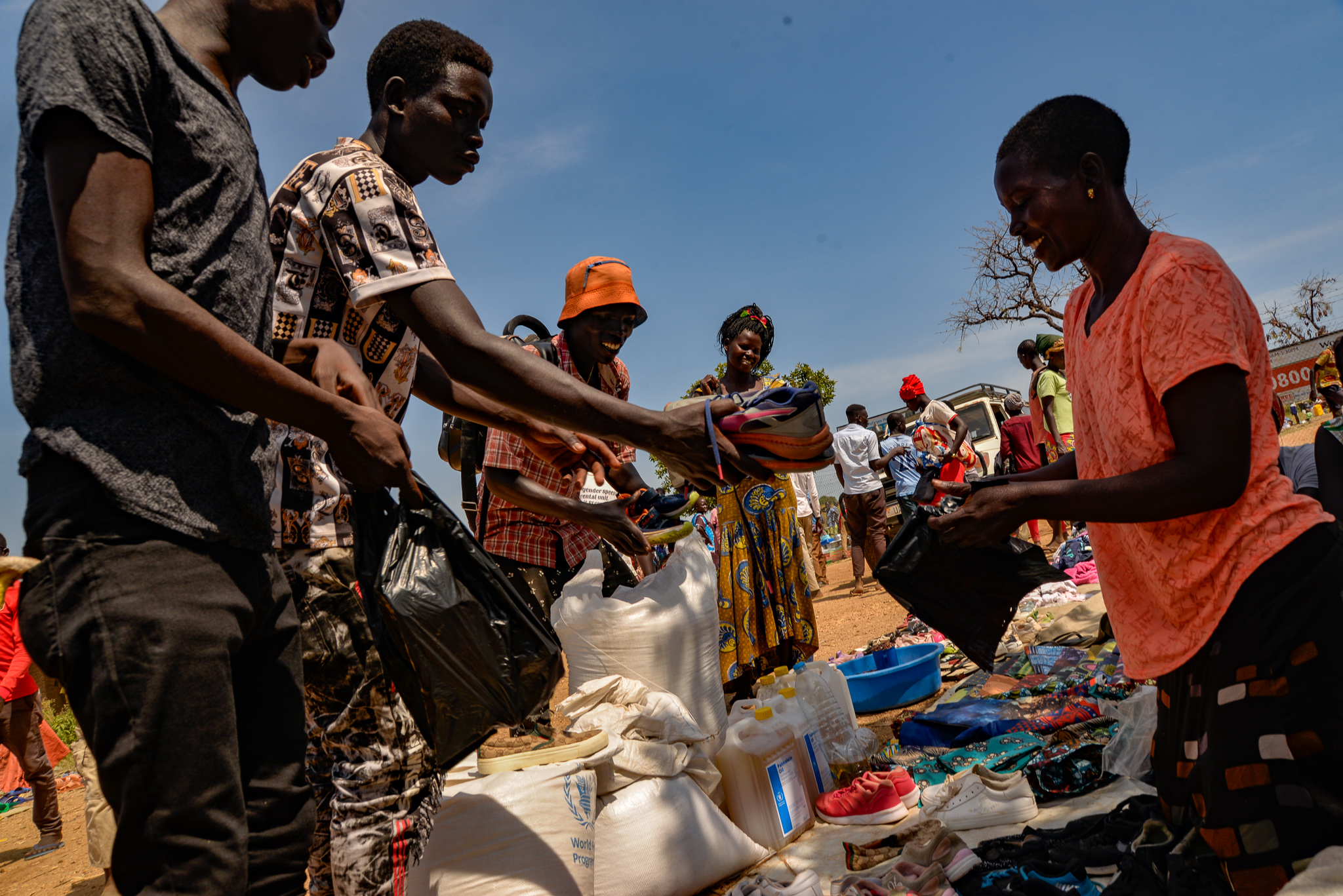
The Christmas season is indeed a time when the market soars. Susan Nyoka, 40, a shoe trader in BidiBidi, sells over 500 pairs between November and December.
“Right from November, customers dramatically increase,” she says. “I wait the whole year to make such sales, but It is always worth it. During this season, I add more stock and ensure to bring the latest fashion and designs on the market.” Like many traders in the settlement, she targets food distribution points where people usually come in large numbers to collect their food ration, and conduct Christmas business.”
At Yoyo Food Distribution Point, World Vision, in partnership with the UN World Food Programme, distributes food to 4,000 people every day. It makes the perfect market for traders. Over 5,000 people camp outside the food distribution point, especially during the Christmas season to buy clothes and shoes in anticipation. Colourful clothes hang in stalls and others lay on the ground, strategically intended to attract any prospective customers. Small crowds of men and women, with their children, surround a few specific sellers considered to have the best designs and prices.
Jackline Apai deals in children’s clothes at Yoyo Food Distribution Point, selling over 30 dresses every day during the Christmas season. “During this season, we make some good money,” she says. “We were worried that because of COVID-19, people will not have the money this time, but it turns out that they had saved it already, specifically for Christmas shopping.”
Christopher Bidal, one of Jackline’s customers, says that buying Christmas clothes for his children is one way of showing them how much he loves them. The 40-year-old says he starts planning on what to buy for the next Christmas right at the beginning of the year.
Back at Pastor Isaac’s home, all the six young children have a new item of clothing to show off from last year. Because of the many financial challenges this year, and his family size, Isaac hasn’t managed to buy for everyone yet as he usually would have by this time. He’s hopeful that by Christmas Day, he will have gotten the money to buy for everyone as it has always been.
Christmas Beauty
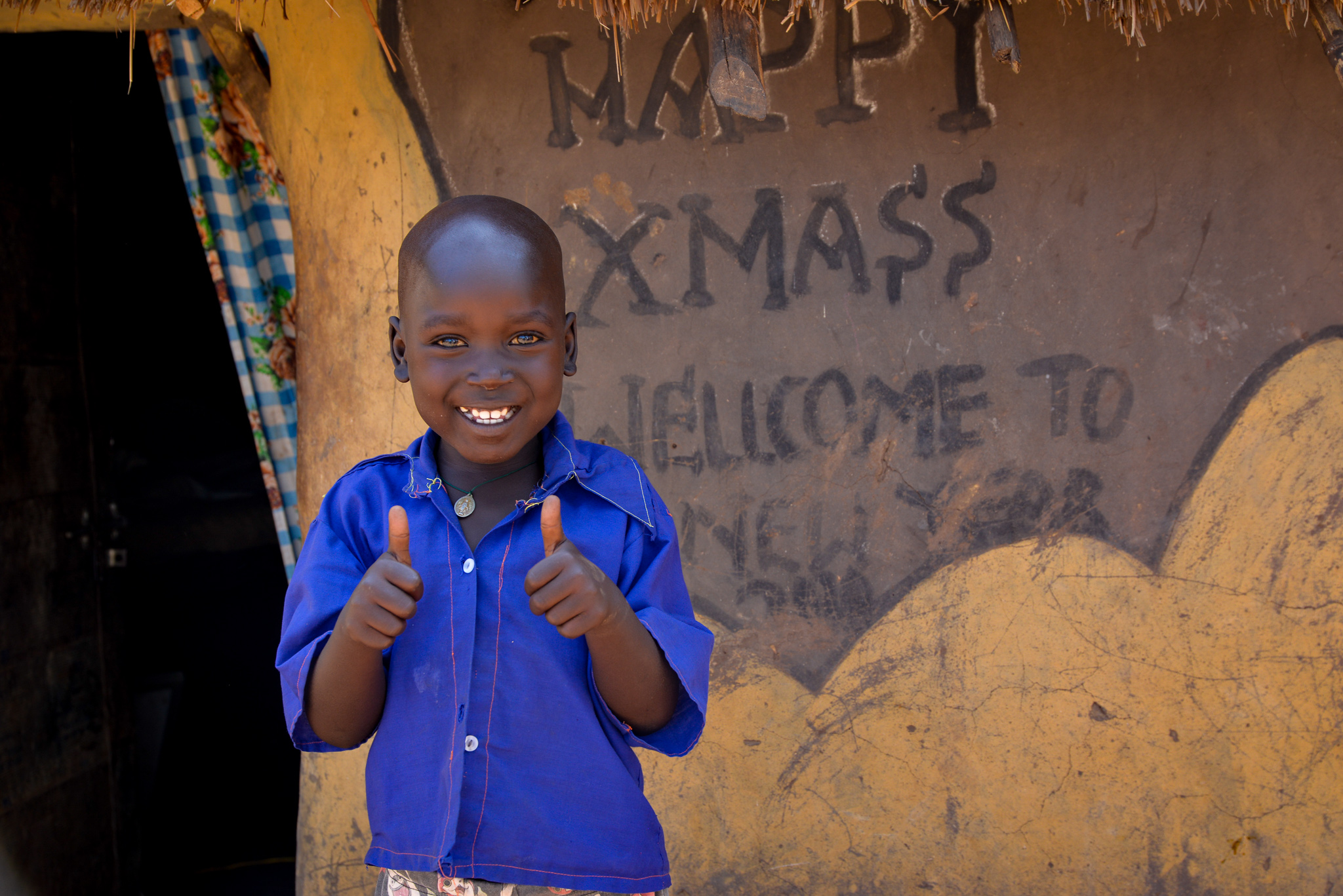
Besides the food, the singing, and the booming business at the market, Christmas is also a time to decorate and paint houses with messages of the birth of Christ. Some of the graffiti stays throughout the year, whereas most of it is washed away by the April rains. “It’s an activity that children and women like participating in,” says Isaac. “Inside the houses, a few flowers and other decorating items are hung. The outside walls of many houses start getting painted with Christmas designs as early as December fifth.”
Indeed, across the villages in BidiBidi and Adjumani refugee settlements, most huts have walls painted with various Christmas messages, most of them from last year. In the coming days though, new and fresh decorations will be painted.
Christmas Blessings
World Vision staff will be reaching out to the most vulnerable children and their families in the refugee settlement, with clothes, shoes, children’s play items and other items this Christmas season.
“Luke 6:38 reminds us that the only way God will continue blessing us abundantly is if we give,” says Philliam Adriko, a World Vision project manager for the Uganda Refugee Response. “Every year we look at this as an opportunity to extend our love to the people we serve. This is the time of the year to share part of what God has given us with others –especially those in need.”
Isaac considers Christmas to be a time of giving, especially to the poor and vulnerable. “We shouldn’t only give to our children and family members,” says the Pastor, “but also to those that are in need.” Every Christmas, the Pastor reaches out to the elderly, persons with disabilities, the sick, and child-headed homes; with food, clothes, and other essential items that he can afford.
“Christmas is all about blessing someone,” he concludes.
And no matter where you live—that’s the true meaning of Christmas indeed.